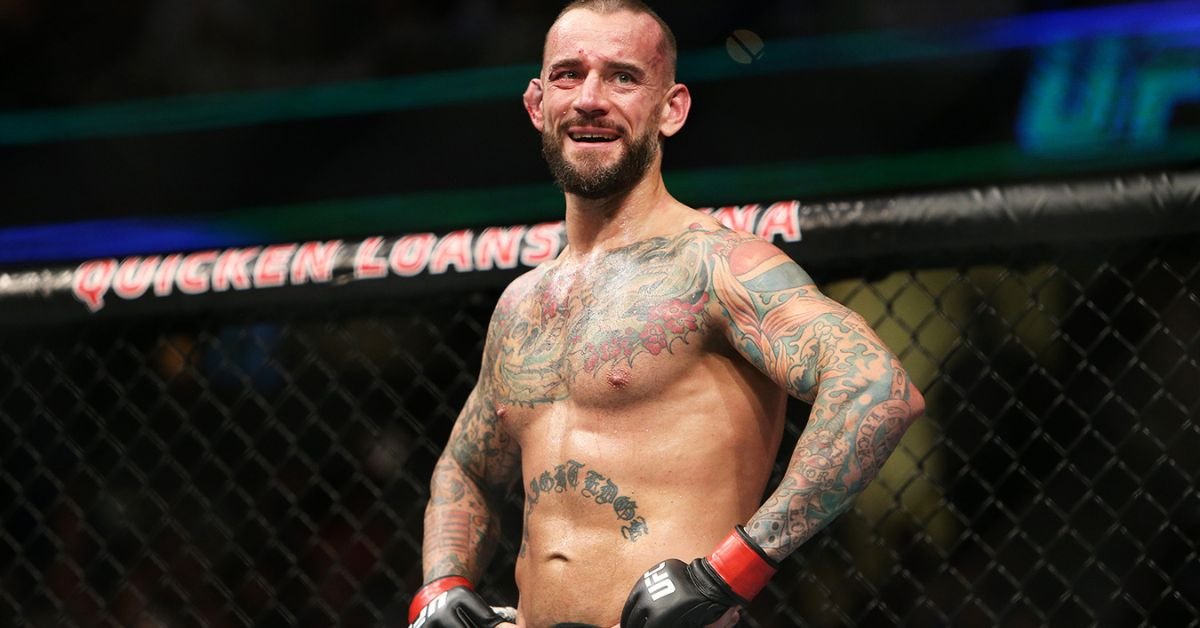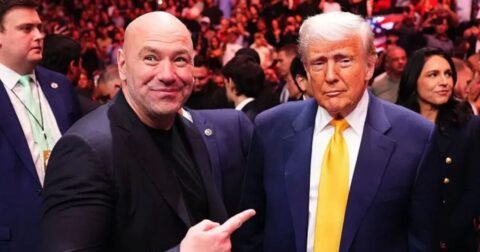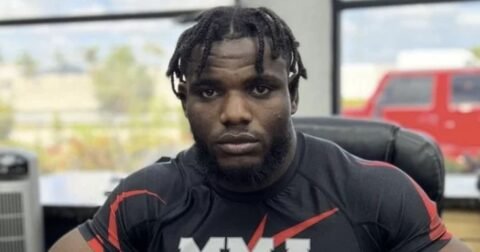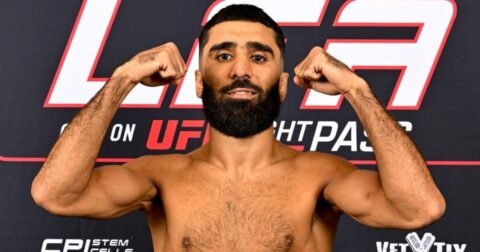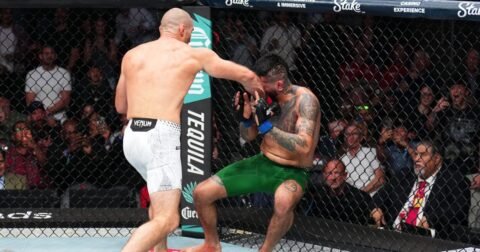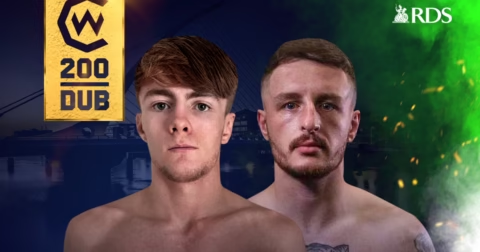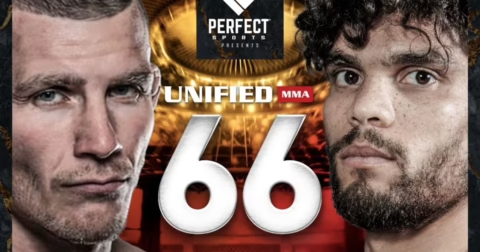CM Punk’s UFC journey has been a unique chapter for fans of both sports and entertainment. After achieving considerable fame as a WWE superstar, CM Punk made the unexpected leap into the world of mixed martial arts. His tenure in the UFC was marked by two fights, where he faced both triumph and tribulation, as he struggled to translate his wrestling prowess into the octagon. Notably, UFC veteran Matt Brown has voiced his thoughts on Punk’s venture into MMA, emphasizing the challenges that come with such a high-profile transition. As the discussions around CM Punk’s UFC career continue, many wonder how this experience will influence his current WWE return, especially with fans eager for more from this enigmatic fighter.
The captivating journey of the former WWE star, now known for his brief stint as an MMA fighter, has generated significant buzz in both wrestling and fighting communities. CM Punk’s entrance into the UFC intrigued many, particularly considering his established popularity in professional wrestling. As he returns to the squared circle, fans are keen to see how his mixed martial arts experience will shape his narrative within WWE. Matt Brown’s reflections on the significance of Punk’s UFC experiences shed light on the complexities behind celebrity fighters in a sport that values skill and toughness. This ongoing saga continues to engage fans, as they ponder the impact of Punk’s dual careers on his legacy.
Matt Brown’s Insights on CM Punk’s UFC Journey
UFC fighter Matt Brown has shared intriguing insights regarding CM Punk’s transition from WWE superstar to MMA fighter in the UFC. In a recent podcast episode, Brown articulated his scepticism towards Punk’s entry into mixed martial arts, highlighting that the UFC may have misjudged the situation. As he explained, many aspiring fighters dream of competing in the UFC, and to see Punk, who was primarily known for his wrestling persona, step into the octagon was controversial. Brown felt the UFC’s decision was less about competition and more about leveraging Punk’s fame, ultimately questioning its effectiveness.
Brown further elaborated on this perspective by reflecting on the implications of such an unprecedented crossover in sports. He posited that while the media buzz surrounding Punk’s UFC debut was palpable, it raised concerns about the integrity of the sport itself. For many insiders like Brown, the essence of fighting is rooted in skill and toughness, not star power. This sentiment echoes a broader discourse on the legitimacy of fighters who enter competitive arenas not purely for their martial arts credentials, but rather their celebrity status, as was the case with CM Punk.
Moreover, the pressure faced by opponents like Mickey Gall should not be overlooked. According to Brown, Gall was thrust into a situation that could have significant ramifications for his career. As a fighter with only one professional matchup under his belt, **Gall** would face the daunting challenge of living up to the expectations set by Punk’s notoriety. This situation sheds light on the broader challenges within the **UFC**, particularly how the involvement of famous figures can inadvertently create an imbalance that affects the career trajectories of legitimate fighters trying to make their mark in the sport.
The Impact of CM Punk’s Return to WWE
CM Punk’s recent return to WWE has been met with mixed emotions from fans and critics alike. After a long hiatus during which he pursued a career in the UFC, Punk’s re-emergence on the wrestling scene has resulted in significant buzz. Many fans are ecstatic to see the beloved WWE superstar back in action, and his matches have showcased his enduring talent and charisma. With each appearance, Punk appears to be eager to reclaim the spotlight, having quickly become a major player in WWE storylines once again.
This second stint feels monumental, as Punk’s established fan base eagerly anticipates his matches. However, some sceptics question whether he can maintain the momentum and consistency needed to compete at the highest levels once more. As Punk navigates the ever-evolving landscape of sports entertainment, his ability to engage with fans and deliver thrilling performances will be critical in defining his legacy beyond the octagon.
Punk’s comeback also raises intriguing questions regarding the potential for a future title run. His wrestling prowess, combined with his experience from UFC, suggests that he may not only revitalize the landscape of WWE but could also contend for significant championships sooner rather than later. This possibility excites many commentators, who speculate on the dynamics of storytelling that could unfold as Punk regains his footing in WWE. Furthermore, this return sparks discussions about the foundational aspects of professional wrestling and the importance of in-ring performance versus celebrity status, especially in the context of his previous UFC exploits.
CM Punk’s Transition from MMA to Wrestling
The journey of CM Punk from the UFC to WWE is a fascinating narrative that underscores the crossroads of professional wrestling and mixed martial arts. After spending several years in MMA, Punk returned to his roots in wrestling, a move that has gained significant attention. His experiences in the octagon, while not always successful, have undeniably enriched his character development and storytelling abilities in the wrestling ring. Fans have been eager to see how the skills he honed while training for MMA inform his wrestling style and persona in WWE.
Punk’s transition also highlights the complexities that come with such a monumental career shift. The discipline and mental toughness required for MMA have contributed to his resilience as a performer. This evolution has not only garnered respect but has also opened conversations about the greater acceptance of fighters transitioning across disciplines. As a prominent figure, Punk serves as a bridge between these two dynamic worlds, allowing narratives to intertwine in ways that resonate with a broader audience.
Moreover, his time spent in the UFC has lent him a unique perspective that sets him apart from other wrestlers who have not ventured into MMA. Punk’s ability to engage with the audience through his experiences creates a new depth in character engagement, something that traditional wrestling narratives sometimes lack. Fans are often drawn to his authenticity, and his ability to blend real-life struggles and triumphs from both the octagon and the wrestling ring adds a compelling layer to his persona. This duality ultimately enriches the viewing experience, showcasing not just the physicality of sport but the narrative artistry involved in professional wrestling.
Pros and Cons of Celebrity Fighters in the UFC
The phenomenon of celebrity fighters entering the UFC presents both opportunities and challenges for the promotion and the sport. On one hand, well-known personalities like CM Punk bring an extensive fan base and generate substantial media coverage, thus increasing viewership and interest in the events. The crossover appeal can draw in audiences who may not typically engage with MMA, thus expanding the sport’s reach and popularity. However, as voiced by Matt Brown, this scenario raises questions regarding the meritocracy of the sport and whether fame should eclipse the essential qualities of skill and toughness that define true fighters in the octagon.
On the flip side, the involvement of celebrities can create a distorted competitive landscape. Fighters like Mickey Gall face undue pressure, where losing to someone less skilled due to fame could have dire implications for their careers. This creates a complex dynamic within the UFC, where the integrity of fighting could become muddied by the allure of celebrity status, overshadowing the achievements of dedicated athletes who have trained tirelessly to compete at their level. Thus, while celebrity fighters can undoubtedly boost visibility for the sport, their presence must be balanced with a commitment to honouring the spirit of mixed martial arts.
Additionally, detractors of high-profile fighters suggest that their participation in the UFC may overshadow traditional martial artists and their hard-earned accomplishments. As fans become more enamoured with personalities rather than performance, the potential for emerging talent to gain recognition diminishes. The implications are far-reaching, influencing everything from grassroots interest to sponsorships. It brings about a pressing question: how can the UFC maintain its competitive integrity while leveraging the benefits brought by celebrity athletes like CM Punk? Paving a path through both celebrity and authenticity may be the challenge of the modern era in MMA.
Future Prospects for CM Punk in WWE
As CM Punk asserts his place upon returning to WWE, fans and analysts alike are keenly watching for the trajectory of his career moving forward. With an impressive roster of competitors and the allure of championship gold, the possibilities for Punk to make a splash are immense. His continuing evolution as a character will play a critical role in shaping upcoming storylines and rivalries, which can elevate Punk back into title contention. The next few months in WWE will be a testing ground to see how well Punk can navigate the landscape laid before him, mixing his storied history with fresh rivalries.
Moreover, Punk’s presence in modern wrestling brings a renewed focus to the discipline and athleticism required to be a champion. It will be interesting to see how WWE capitalizes on Punk’s crossover appeal from his UFC past and how they might integrate that into compelling narratives. Engaging audiences with not only matches but authentic storytelling is paramount, and Punk has the potential to be at the centre of that dialogue. As the WWE universe fervently anticipates his every move, the stage is set for a potentially transformative chapter in Punk’s illustrious career.
Looking ahead, the prospects for a title run appear favourable, provided that WWE fans continue to rally behind him and support the direction of his character. Conversations surrounding potential matches with current champions and fan-favourites generate significant excitement. With his seasoned in-ring abilities and resonant storytelling, CM Punk can return to headline main events, reminding audiences of his undeniable impact on the wrestling landscape. The intricate balance of nostalgia and innovation will be key in cementing his legacy as one of the all-time greats in professional wrestling.
The Broader Narrative of Fighting and Fame
The intersection of fighting and fame is a topic that continues to provoke dialogue in both the MMA and professional wrestling communities. The plight of CM Punk exemplifies the delicate balance between being a celebrity and a fighter, with weighty implications for how athletes perceive their roles. The celebrity culture surrounding fighters like Punk creates scenarios where the sport’s integrity is constantly evaluated against the backdrop of entertainment value. Matt Brown’s commentary sheds light on the complex dynamics at play when fame overshadows fighting ability, often making it difficult to discern the line between authentic competition and theatrical spectacle.
Within this narrative, it becomes essential to acknowledge the contributions of traditional fighters who embody the grit and struggle of the sport. As audiences become increasingly consumed by celebrity personalities, genuine talent and determination can sometimes fade into the background. This raises critical questions about the future of combat sports, pushing stakeholders to consider how they can create a culture that uplifts true fighters while still capitalizing on the allure that celebrities bring.
Furthermore, the blending of celebrity influence and combat sports poses intriguing avenues for the future. Young athletes entering the fold may encounter a landscape where fame and recognition play a significant role in their opportunities. As Matt Brown indicated, this may not bode well for those who climb the ranks through sheer dedication alone. The task moving forward is to foster an environment that appreciates individual talent, skill, and perseverance while also acknowledging the role of entertainment in engaging broader audiences. Finding this equilibrium may be key to ensuring a stable and thriving future in both the UFC and wrestling, where the legacy of competitors like CM Punk continues to shape discussions and influence aspiring fighters around the world.
| Key Point | Details |
|---|---|
| CM Punk’s Return to WWE | After a decade away, CM Punk is now on his second stint in WWE, delivering great matches and eyeing a world title opportunity. |
| CM Punk’s MMA Career | Punk fought twice in the UFC, losing one match by submission and the other by decision, which surprised many fans. |
| Matt Brown’s Perspective | Brown discussed Punk’s UFC involvement, questioning if it was a good PR move and emphasizing that recognition shouldn’t grant entry into the octagon without merit. |
| Pressure on Mickey Gall | Brown highlighted the pressure on Mickey Gall, who fought Punk early in his career with high stakes regarding public perception. |
Summary
CM Punk UFC discussions have been revived due to the insights shared by UFC legend Matt Brown. As Punk continues to impress the WWE audience after his notable return, his past in the UFC remains a subject of scrutiny. Matt Brown’s critique emphasizes that fame should not overshadow skill in combat sports, reflecting larger principles about athlete competency and the integrity of fighting. Punk’s journey from WWE to MMA and back again serves as a fascinating narrative of resilience and ambition in the world of professional sports.
Frequently Asked Questions
What are Matt Brown’s thoughts on CM Punk’s UFC career?
Matt Brown has expressed that CM Punk’s UFC career raised eyebrows, as he believes that fame alone shouldn’t grant someone a spot in the octagon. He felt Punk’s involvement did more for Mickey Gall, who fought Punk than for the UFC itself. Brown emphasizes the importance of being a skilled fighter over having celebrity status.
How has CM Punk’s UFC career impacted his WWE return?
CM Punk’s UFC career was a significant chapter in his life, allowing him to showcase his determination outside of WWE. After two challenging fights, Punk has returned to WWE, where he has been on an impressive streak, revitalizing his career. Many fans are excited about his potential title contention following his entrance back into the promotion.
Did CM Punk succeed as an MMA fighter in the UFC?
No, CM Punk experienced difficulties in his MMA career in the UFC, losing both of his fights. He lost one match by submission and the other by decision, which has sparked discussions about the crossover from pro wrestling to MMA. Despite these challenges, Punk’s determination and commitment to the sport are noteworthy.
What makes CM Punk a controversial figure in the UFC?
CM Punk is seen as a controversial figure in the UFC primarily due to his celebrity status as a WWE superstar. Many believe he was granted a chance in the UFC more because of his fame than his fighting skills. This has led to debates about meritocracy and the entry standards for fighters in the UFC.
How did CM Punk’s celebrity status affect his UFC debut?
CM Punk’s celebrity status generated significant media attention leading up to his UFC debut, which created immense pressure for both him and his opponents. Matt Brown pointed out that Mickey Gall faced unique stress, feeling the weight of the expectations and the attention that came with fighting a high-profile figure like Punk.
What is the current status of CM Punk in WWE after his UFC stint?
After his time in UFC, CM Punk made a notable return to WWE, where he has engaged in multiple great matches. His performance has captured the attention of fans, and there’s speculation he could be in contention for a world title soon. His comeback has been marked by enthusiasm and strong competition.
What lessons can be learned from CM Punk’s UFC experience?
CM Punk’s experience in the UFC illustrates that transitioning from wrestling to MMA is not guaranteed to succeed. It highlights the importance of skill and preparation in combat sports and raises questions about the impact of celebrity status on opportunities within high-level competitions.
What challenges did CM Punk face during his UFC fights?
CM Punk faced numerous challenges during his UFC fights, including a steep learning curve and the pressure of high expectations. His lack of extensive training before entering the UFC put him at a significant disadvantage compared to seasoned fighters like Mickey Gall.

